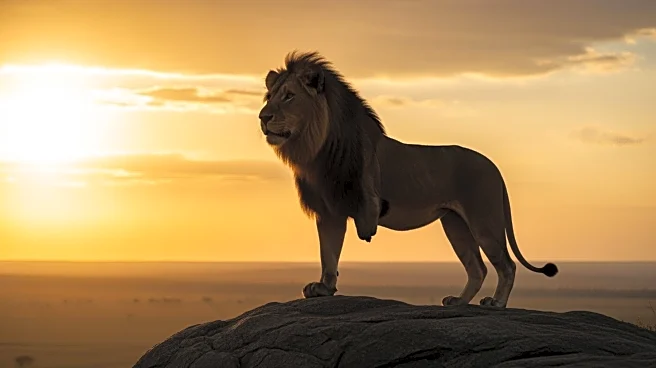What's Happening?
Jacob, an 11-year-old lion in Uganda's Queen Elizabeth National Park, has developed a unique hunting strategy after losing a leg to a poacher's snare. Despite predictions that he would struggle to survive, Jacob has adapted by setting close-range ambushes
in dense thickets, targeting prey that lions typically do not hunt, such as forest hogs. This inventive approach has allowed him to thrive alongside his brother, Tibu. Jacob's survival strategy, captured through thermal drone footage, demonstrates his ability to adapt to physical limitations and environmental challenges.
Why It's Important?
Jacob's story highlights the resilience and adaptability of wildlife in the face of adversity. His innovative hunting strategy offers insights into how animals can adjust their behaviors to overcome physical challenges. This case study is significant for conservation efforts, as it suggests that such adaptive behaviors could help reverse declining lion populations in regions facing habitat loss and climate change. Jacob's ability to survive and thrive despite his injuries underscores the importance of understanding and supporting wildlife adaptation strategies in conservation planning.
What's Next?
Jacob's novel hunting strategy may be teachable behavior that could benefit other lions facing similar challenges. Conservationists may explore ways to support and encourage such adaptive behaviors to enhance survival rates among injured or disabled wildlife. Further research into Jacob's behavior could provide valuable insights into lion adaptation and resilience, informing conservation strategies in regions affected by human encroachment and environmental changes.
Beyond the Headlines
Jacob's survival story serves as a symbolic reminder of the challenges faced by wildlife due to human activities, such as poaching. It emphasizes the need for increased conservation efforts and awareness to protect vulnerable species. Jacob's ability to adapt and thrive despite his injuries highlights the potential for wildlife to overcome adversity, offering hope for conservationists working to preserve endangered species.
















